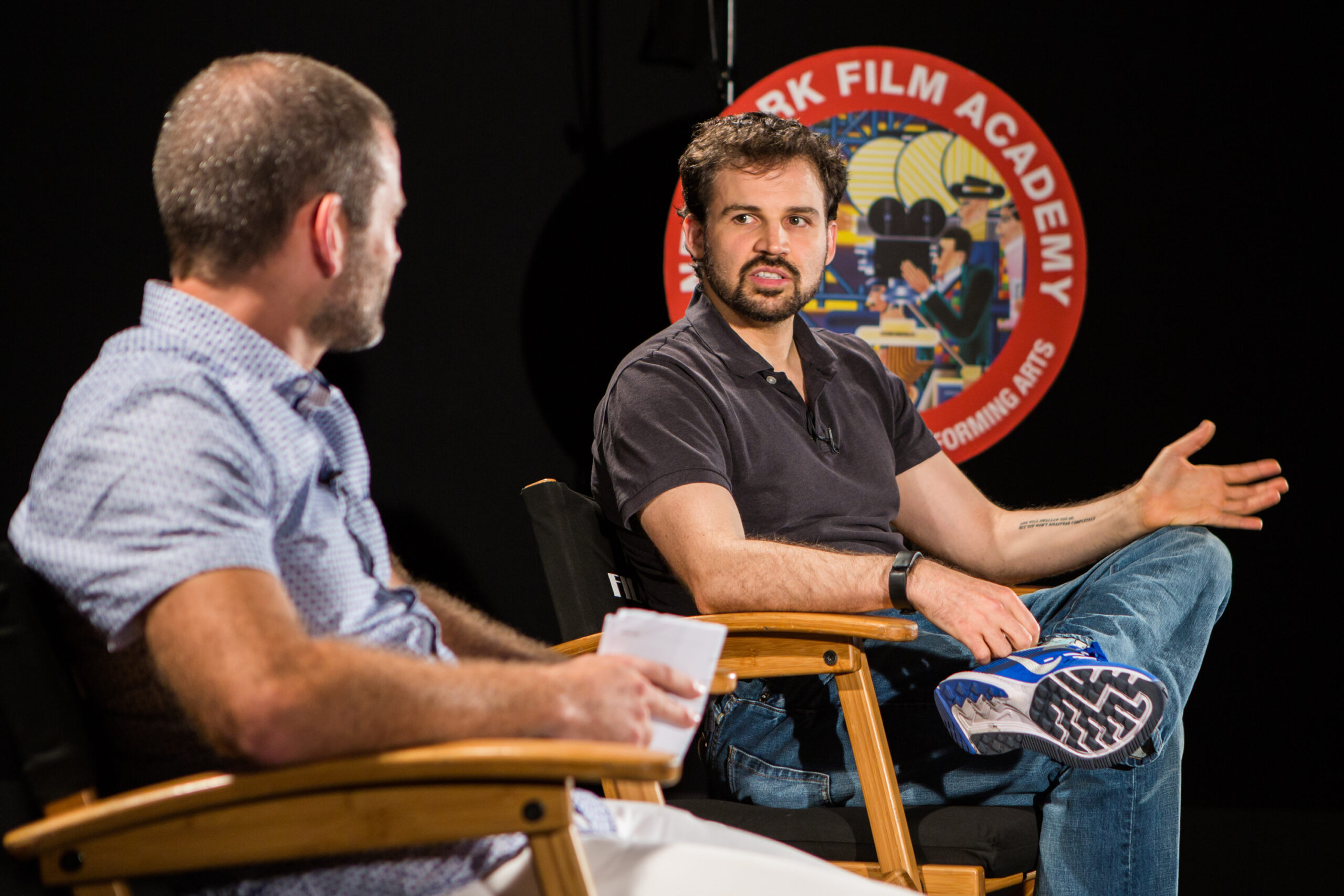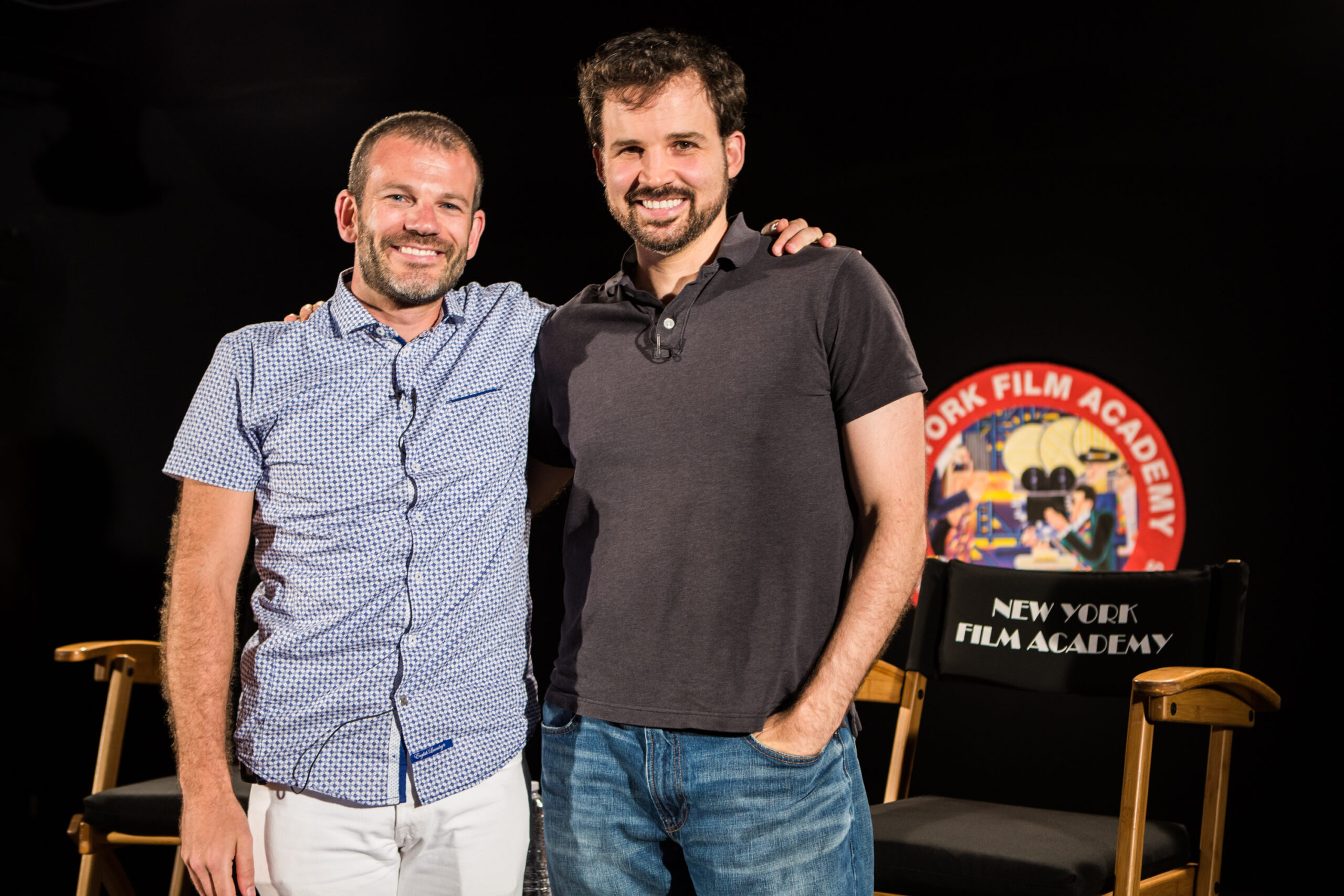Gordon Smith began his career as an assistant to creator and showrunner Vince Gilligan, during his Breaking Bad run. He was promoted to full-time writer on the Breaking Bad spinoff, Better Call Saul. Smith wrote the episode “5-0”, about how Mike Ehrmantraut (played by Jonathan Banks) became an officer of the law. The episode was nominated for an Emmy for Outstanding Writing for a Drama Series, and helped earn Banks an Emmy nomination for Outstanding Supporting Actor in a Drama. New York Film Academy instructor, and screenwriter, David O’Leary hosted the event.

Smith attributes most of his success to luck. While in college, he wrote a script that would become Gennifer Hutchison’s directing thesis. Hutchison went on to be a writer’s PA on Mad Men before moving to Breaking Bad. During season three, Gennifer was getting freelance work and that created a need for a new writer’s P.A. She called up Smith. Gennifer was hired on as full staff and Smith was able to fill her space.
The transition from being Gilligan’s assistant to becoming a staff writer was mostly an easy one. The one challenge was being out of the know. As the assistant to the showrunner, you have to know every little bit of information including, who’s on set that day, what chemical they used three seasons ago to blow out a window, which outlet are coming to do interviews. That goes away when the staff is locked in the writer’s room trying to churn out the best possible material. But, soon he was happy to be just writing and didn’t miss the chaos.

“We work very slowly,” Smith said of the writer’s room. He commented that it was nice to move at a speed that wasn’t breakneck. The first two weeks of production are focused on what that season’s story will be. “We will lay them (ideas) out on a board. But big guiding light stories will move around a lot.”
He continued, “This is a virtue of the way we work. We have ideas and if wherever we think we want to be and where we are don’t match up we’re just like, well this is what we do. We don’t say, ‘Well we have to get to here by episode five so we have to do this and this and this to get to that.’ It’s almost always backward looking. What have we done and where should the characters most logically go next? That has served us in good stead because it allows us the opportunity to investigate things. It feels like we’re planted to something.”
“We break everything together. For a show as serialized as Better Call Saul, you kind of have to. If a person leaves to write his or her script everyone knows what’s happening in that scene. We usually get a couple weeks out of the room to write, but the rest of the time you have to write at lunch or on the weekend.”

As demanding as the workload is Smith joked that he still has struggled. “My process tends to be… I have to trick myself into it because I want to procrastinate so badly. I’ll go in and slug everything.” Slugging is placing in the scene headings as a way of outlining the script. Once the scenes are placed in order Smith said he knows he’ll, “…just keep going back to write more and more.” It never feels like writing.
Smith went on to describe the writing room as liberating. For example, in most visual writing it’s considered in bad taste to call a shot. Shot lists are for the directors to make not the writers. But, in Breaking Bad and Better Call Saul, they’re allowed to call a shot. They know they’re going to talk to the director. The shot can be cut if the director doesn’t think it will work or if they have another shot in mind. The freedom to try things and switch at the last minute give a sense of freedom.
One student asked, “Since Saul and many of the characters already existed did you use pre-conceived backgrounds or create new ones, and how did you decide what history to go with?” Smith described going back to Breaking Bad and trying to determine whether or not the things Saul said were true or false and to what degree. Mike didn’t have too much of a background story. Banks pitched an idea that Mike’s son was a boxer who died in the ring. It was a theory Banks had been working around as he tried to dive into the character of Mike. The writers loved it and picked up the story from there.
The New York Film Academy would like to thank Mr. Smith for stopping by and sharing his work. Catch Smith’s next writing assignment on season two of Outsiders returning to WGN in 2017.
